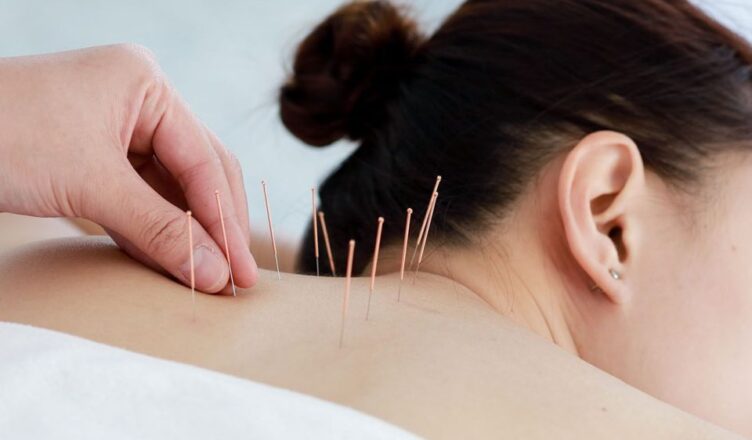If you’re familiar with pain, then you may have heard about acupuncture as one of the latest and prevailing treatments for pain alleviation. But if you’ve never tried it before, it’s completely normal to ask yourself if it actually does work. This blog is the answer to that. But instead of just a plain answer, this article will touch on more technical aspects of the topic. From what an acupuncturist Wicker Park or any other town does to what the process of acupuncture involves. But at the end of this guide, you’ll surely be able to tell whether or not acupuncture does work for pain alleviation and healing promotion.
What is Acupuncture?
Starting from the definition, acupuncture is an ancient Chinese medical practice that involves inserting thin needles into specific points on the body. These points, also known as acupoints, are believed to be connected by pathways called meridians through which life energy, or “qi” (pronounced “chee”), flows. So, by stimulating these points, acupuncturists aim to restore balance and promote the body’s natural healing processes.
When is it Usually Prescribed?
An acupuncturist in Wicker Park or any other place often prescribes the treatment for a wide range of conditions, including but not limited to:
● Chronic pain (such as back pain, neck pain, and osteoarthritis)
● Migraines and headaches
● Anxiety and depression
● Insomnia
● Digestive disorders
● Allergies and asthma
● Menstrual cramps and reproductive issues
● Smoking cessation and weight loss
It is also commonly used as a complementary therapy for patients undergoing cancer treatment to help manage symptoms like nausea, fatigue, and pain.
How Does it Work?
The scientific community has been studying acupuncture for decades to understand how it works. While the exact mechanisms are still not fully understood, several theories have been proposed.
For instance, some studies have stated that acupuncture works by stimulating the release of neurotransmitters like endorphins and serotonin, which then help reduce pain and improve mood. Other research proposes that inserting needles into acupoints may improve local blood circulation, promoting healing and reducing inflammation.
There’s also the approach from the nervous system. Here, acupuncture might modulate the autonomic nervous system, which controls bodily functions such as heart rate, digestion, and respiratory rate. This regulation can lead to a calming effect and relief from stress and anxiety.
Finally, the gate control theory suggests that acupuncture can block pain signals from reaching the brain by stimulating nerves that transmit non-painful signals.
But even with all these procedures, does it work?
Does Acupuncture Work?
The short answer is yes. Acupuncture does work for pain alleviation and relief. While all the methods mentioned above are several ways acupuncture works, multiple people have testified to the success of the treatment to help relieve pain.
Cases of Successful Treatment
To back it up, numerous studies and patient testimonials support the effectiveness of acupuncture for various conditions. Here are a few examples:
1. Chronic Pain: A meta-analysis published in the Archives of Internal Medicine in 2012 found that acupuncture significantly relieved chronic pain conditions like osteoarthritis, migraines, and chronic back pain compared to sham acupuncture or no treatment.
2. Migraines and Headaches: The Cochrane Database of Systematic Reviews reported that acupuncture could reduce the frequency of migraines and headaches, often with better outcomes than standard drug treatments.
3. Cancer-related Symptoms: A study in the Journal of Clinical Oncology showed that acupuncture effectively reduced nausea and vomiting in cancer patients undergoing chemotherapy.
4. Mental Health: Research published in the Journal of Affective Disorders indicated that acupuncture could be a beneficial adjunct therapy for patients with depression and anxiety, improving overall well-being and reducing symptoms.
Where to Find a Quality Acupuncturist in Chicago, IL?
If you live in Bucktown or Wicker Park, finding a skilled and reputable acupuncturist is crucial for a positive experience. That said, here are some tips to help you locate a quality acupuncturist Bucktown or Wicker Park, Chicago, IL:
- Credentials and Licensing: When you find a list of specialists, ensure they are licensed by the Illinois Department of Financial and Professional Regulation (IDFPR). Look for certifications from reputable organizations like the National Certification Commission for Acupuncture and Oriental Medicine (NCCAOM).
- Referrals and Reviews: To be safe, ask your primary care physician, friends, or family for recommendations.
- Experience and Specialization: Instead of blindly browsing online sites, you can check for specialists like Copper Wellness or other certified acupuncturists in Bucktown, Chicago, IL. Ensure to choose an acupuncturist with experience treating your specific condition. Some practitioners specialize in pain management, while others may focus on mental health, fertility, or other areas.

